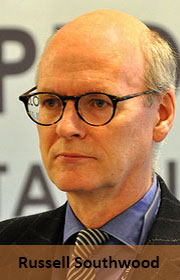 A decade ago, fierce battles were fought to get a number of Africa’s state-owned telecommunications operators into private hands and to strip them of their monopoly privileges.
A decade ago, fierce battles were fought to get a number of Africa’s state-owned telecommunications operators into private hands and to strip them of their monopoly privileges.
State-owned incumbents stand in the way of economic development. Almost without exception, they are poorly run and the quality of infrastructure and service they provide is sub-standard.
Because they are monopolies, they keep prices high for other players in the market: places like Angola, Cameroon, Ethiopia and Djibouti have some of the highest international, national wholesale and — surprise, surprise — retail prices on the continent.
Because they are owned by financially cash-strapped governments, they are not properly invested in and wages for their employees are often late. Chinese loans have helped with underinvestment but cannot deal with the other problems identified here. Incumbents are significantly overstaffed and under-skilled. Hardly any has a business strategy that is worth the paper it is printed on. Like the baobab tree, very little grows in their shade; they become the only pool for certain types of skills and these remain substandard.
The easiest part of the Gordian knot at the heart of the divestment problem is that governments protect them because they fear what will happen if there are wide-scale redundancies. They are therefore reluctant to remove the monopoly protection from them. In places like Mali, where there was competition from Orange, government-owned Sotelma lost customers quickly and they largely stayed lost.
However, governments like Kenya’s and Ghana’s, which bit the bullet on this issue, lived to see another day. Some, like Nigeria, have made such a mess of the process that they have lost most of whatever the value might have been of the assets of Nitel. Others, like Niger and Zambia, privatised only to see the collapse of Lap Green during the Libyan civil war mean that they had to re-nationalise. Zambia has held on to Zamtel because a new government felt that the previous deal to sell was not at a fair price.
The trickier part of the conundrum is about politics. Often corruption extends back into the owners, the government. Politicians have a nasty habit of treating these operators as cash machines, particularly at election time. In the case of Swaziland, the ownership is directly held by the king: why he should sell it off in those circumstances?
Where corrupt money is not involved, patronage has gone a long way to help wreck what efficiency might notionally exist. Everybody’s brother who is connected potentially gets a job, and the management jobs are plum positions under political control in many countries.
African politicians would like to persuade us that state operators are a key part of closing the digital divide and joining the information societies. Because the rhetoric is warming and positive in intent does not mean that we should believe them. All the countries identified below are lagging behind in closing the digital divide.
One of the key issues in African telecoms liberalisation has been the way that state monopoly incumbents hold up the development of a more complex, more highly skilled market. If the incumbent sells wholesale capacity to local Internet service providers (ISPs), you can be sure that its employees are going to those ISP customers and trying to poach them. Furthermore, these kinds of state companies have no idea of the cost of providing wholesale capacity for two reasons: firstly, they lack the commercial ability to work it out and secondly, there is no benchmark price in the market.

To tackle this problem, a number of governments have taken the sensible step of separating wholesale and retail functions. Ghana Telecom was sold on the basis that this had to occur and it has worked better than expected. Botswana has done the same with BTC while holding on to both parts.
Also, the World Bank has sponsored and helped finance operator consortia to eat away at the more egregious of these monopoly privileges such as subsea cable landing stations and national networks (as in Burundi).
Africa has 31 countries where there is a state-owned incumbent that is either dominant or has monopoly privileges that hamper the growth and efficiency of the market. These are Algeria, Angola, Benin, Burundi, Cameroon, the Central African Republic, Chad, Comoros, Congo-Brazzaville, Congo-Kinshasa, Djibouti, Egypt, Equatorial Guinea, Eritrea, Ethiopia, Gambia, Guinea, Guinea-Bissau, Libya (which has several state entities), Mali, Mozambique, Namibia, Niger, São Tomé, Sierra Leone, Swaziland, Tanzania, Zambia and Zimbabwe.
Several of these countries are in political turmoil that makes it impossible to do anything about privatising the incumbent operator. Others, like Comores, are going through the privatisation loop again.
What follows are the top five where privatisation would have a huge impact:
- Ethiopia: It is the North Korea of telecoms regulatory practice. It claims that Ethio Telecom plays a crucial role in closing the digital divide. Its equipment and network procurement has been a mess and, even with Chinese loans, it is still serving fewer customers than it might if it were in private hands. Prices remain high and market development has not been helped by a ban on SMS for several years. It remains, more or less, the only company in the market, whereas other, more open economies have seen jobs and skills flourish. Rather cheekily, we’re going to add Ethiopia’s traditional enemy Eritrea in here as it is the only country without an international fibre landing station or any plans to build one.
- Mozambique: This country is talking about privatisation, but don’t hold your breath. Incumbent TDM retains a number of monopoly market privileges and charges neighbouring countries high transit prices for access to international fibre capacity.
- Cameroon: There was one attempt to privatise Camtel. The government either didn’t like the price or no one came to the party. Despite the huge amount of pride some Cameroonians still have in Camtel, it is hugely inefficient and its monopoly control of both the landing station and national fibre networks mean prices are higher than they should be. It refused World Bank money to create a national wholesale fibre consortium and its market development has been delayed by not dealing with this issue.
- Namibia: Telecom Namibia is one of those cosy, unnoticed monopolies. The country is small and has a relatively high standard of living compared to many of its neighbours. It has a relatively well-equipped national infrastructure but keeps national wholesale prices high. In an act of hubris, it had a commercial strategy to get involved in neighbouring operators in Angola and South Africa. Like foreign investments made by South Africa’s Telkom, these were without exception a disaster.
- Zimbabwe: It hasn’t been for want of trying, as the endless stream of rumours about potential buyers show. But the recent spat about whether an ISP can run voice-over-Internet protocol services shows there are still red lines in what is now otherwise a competitive market. The issue here is that the government clearly wants more money than potential buyers are willing to pay. Something has to give and it’s probably the government’s negotiating position.
Privatising a state-owned telecoms operator in the African context is about a government making a commitment to having an efficient economy that will produce sustainable jobs. If it can’t make that commitment, what’s the point of all the warming “blah-blah” at the international conferences about them becoming information societies?
- Russell Southwood is head of Balancing Act Africa




